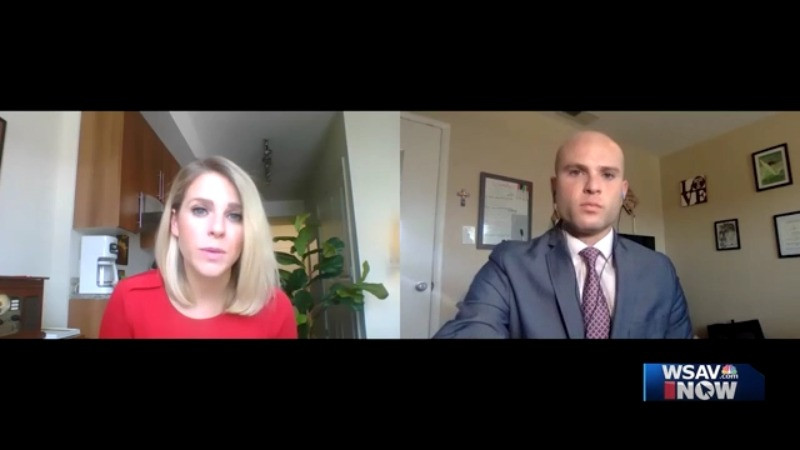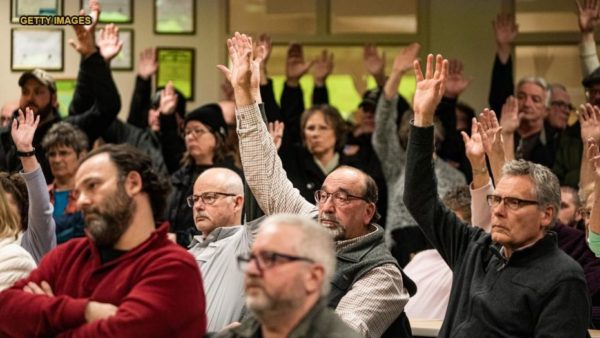Ballot harvesting under scrutiny in California elections
By ADAM BEAM and AMY TAXIN Associated Press
SACRAMENTO, Calif. (AP) — For the first time, all of California’s more than 21 million active registered voters got a ballot in the mail that they can fill out in their own homes. While only you can complete your ballot, anyone can return it for you.
And that’s where things get complicated.
Campaigns and political parties have organized sophisticated efforts to collect ballots from likely supporters and return them to county election offices, a practice known as “ballot harvesting.”
Some states have banned this practice, but it’s legal in California and it’s generating lots of controversy this year.
WHAT DOES THE LAW SAY?
State law says voters have four options to return their ballot. They can mail it, return it in person to an election center, put it in an official drop box operated by their county or give it to someone else to return it for them.
The law says people who return ballots for others must print on the ballot their name, state their relationship to the voter and sign it. And, they must return the ballot within three days of receiving it.
However, the ballots will still be counted even if the collector does not sign them or keeps them for longer than three days, as long as they are filled out correctly and returned by Election Day, Nov. 3 There is no limit on the number of ballots a harvester can return.
DOES THE STATE REGULATE BALLOT DROP BOXES?
Yes. State law defines a vote-by-mail ballot drop box as “a secure receptacle established by a county or city and county elections official.” The secretary of state has rules about the boxes’ design, how they should be labeled and how often ballots should be retrieved. But county election officials decide how many boxes to have and where to put them.
WHAT ARE REPUBLICANS DOING?
The California Republican Party is setting up their own ballot drop boxes. Party leaders disclosed they have put them in three counties with closely contested U.S. House races: Orange, Fresno and Los Angeles.
But they say they are being used in additional counties as well but won’t identify them. Party spokesman Hector Barajas said several dozen boxes are in use and more soon could be set up.. Party officials would not say how many votes have been collected with the boxes.
Some of the drop boxes appeared to be filing cabinets with a taped piece of paper labeling them “official ballot drop boxes.” They were at churches, county Republican Party headquarters and some businesses.
Secretary of State Alex Padilla and Attorney General Xavier Becerra, both Democrats, say these boxes are illegal. They say the law only allows drop boxes established by local elections officials. And, they say the law only lets voters give their ballots to a person.
Plus, they worry voters will confuse the boxes with the official ballot drop boxes operated by county election officials.
Republicans say they are following the law and making sure the boxes are secure and monitored. They have admitted it was wrong to label some boxes as “official” and said they stopped doing that. They say the ballot harvesters are not signing the ballots because the law does not disqualify the ballots for lacking harvesters’ signatures.
WHAT ARE DEMOCRATS DOING?
In the past, Democrats have used volunteers to go door to door to collect ballots from supporters and return them to county election offices. But many are not doing that this year because of the coronavirus.
Democratic U.S. Rep. Harley Rouda’s campaign has designated “neighborhood ballot hubs.” These are places for supporters to drop off their ballots with someone who will deliver them to county election offices. Rouda is a freshman whose Orange County seat is one Republicans have targeted.
A campaign handbook describes these hubs as a porch or outside of someone’s home. A volunteer ballot collector is assigned to take the ballots, sign them and turn them in the same day. The volunteer also keeps a log of ballots collected.
Republicans say these hubs are no different than their unofficial drop boxes, arguing in a news release that “it’s not logical that a pastor can’t keep his congregation’s ballots in a secure locked box” while Rouda’s campaign can use neighborhood hubs.
Rouda’s campaign says it is following the law, and the GOP is not.
WHO IS RIGHT?
It’s possible a judge will decide. The secretary of state and attorney general have ordered Republicans to remove their boxes by the end of Thursday. Republicans have refused. State officials say they are considering “legal options.”
Jessica Levinson, an election law professor at Loyola Law School, says the distinction between the two sides is Democrat ballot harvesters are signing their ballots while Republicans are not.
“It doesn’t become any less of a requirement just because California has decided we’re not going to penalize the voter for picking a derelict designee,” she said.
California Republican Party lawyer Tom Hiltachk said it is “simply wrong” to say ballot harvesters must sign ballots before they are delivered.
“Our program is very secure, is locked, is monitored and we take this program quite seriously,” Hiltachk said.
Taxin reported from Orange County, California.
Copyright 2020 The Associated Press. All rights reserved. This material may not be published, broadcast, rewritten or redistributed without permission.







